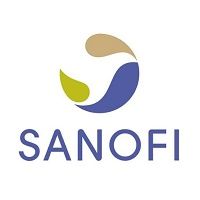Article
Investigational Isatuximab Shows Added Benefit for Multiple Myeloma
Author(s):
New phase 3 trial results show the monoclonal antibody plus pomalidomide and dexamethasone improves progression free survival and overall response rate among patients with RRMM.

A three-drug combination therapy may serve as a significant benefit for progression free survival (PFS) and overall response rate (ORR) among patients with the rare relapsed/refractory multiple myeloma (RRMM).
New phase 3 trial data presented at the American Society of Clinical Oncology (ASCO) 2019 Annual Meeting in Chicago, IL, this weekend show that a combination of novel anti-CD38 monocloncal antibody isatuximab (Isa), pomalidomide (P)/dexamethasone (d) is a statistically significantly more efficacious and comparably safe drug for RRMM when compared to standard Pd therapy.
The findings indicate the investigative IsaPd, from Sanofi, could eventually achieve marketing use as an RRMM therapy.
A team of Sanofi-supported investigators conducting the ICARIA-MM study program—led by Paul G. Richardson, MD, of the Dana-Farber Cancer Institute—sought to demonstrate the PFS improvement driven by IsaPd in patients with RRMM.
To assess this endpoint, the team randomized 307 patients 1:1 to either IsaPd (n= 154) or Pd (n= 153). Median patient age was 67 years, and median prior lines of therapy (LOT) were 3. Estimated glomerular filtration rate (GFR) greater than 60 ml/min was found in approximately one-third of all patients. Each patient had received at least 2 prior LOT, plus lenalidomide (len) and proteasome inhibitor (PI).
Patients receiving IsaPd were administered 10 mg/kg IV weekly for the first 4 weeks, then once every 2 weeks. Both treatment groups received approved schedules of P/d every 28 days until progression or having reached unacceptable toxicity.
At median follow-up (11.6 months), median patient PFS was 11.5 months for IsaPd-treated patients, versus 6.5 months in P/d-treated patients (HR .596; 95% CI: 0.44 - 0.81; P= .001). ORR was achieved in 60.4% of patients on IsaPd, versus just 35.3% of Pd patients (P < .0001), and very good partial response (VGPR) rate or better was also significantly greater in patients on IsaPd (31.8%) than patients on Pd (8.5%).
At the time of analysis, overall survival was immature—at just 99 events—but was trending toward marked improvement in IsaPd patients (HR 0.687; 95% CI: 0.461 — 1.023). Median treatment duration was 41 weeks in ISaPd patients, versus 24 weeks in Pd patients. Grade 3≥ adverse events were reported in more IsaPd patients than Pd patients (86.8% vs 70.5%), though fewer IsaPd (7.2%) patients discontinued therapy than Pd (12.8%) patients.
In a statement accompanying the announced study results, John Reed, MD, PhD, Sanofi head of Research and Development, said the positive IsaPd findings for RRMM are part of the company’s strategic focus to address unmet patient needs, particular in areas of late-stage oncology drug development.
“We are particularly excited to share the results from our pivotal phase 3 ICARIA-MM trial of isatuximab in patients with a difficult-to-treat relapse/refractory multiple myeloma,” he said. “This is the first of multiple phase 3 trials with isatuximab, our wholly-owned molecule under investigation for the treatment of multiple myeloma.”
Investigators concluded isatuximab plus pomalidomide/dexamethasone significantly improved RRMM patient PFS and ORR when compared to lone pomalidomide/dexamethasone. The findings hold merit to the investigational therapy being a critical asset in care for this patient population.
The study, "A phase III randomized, open label, multicenter study comparing isatuximab, pomalidomide, and low-dose dexamethasone versus pomalidomide and low-dose dexamethasone in patients with relapsed/refractory multiple myeloma (RRMM)," was presented at ASCO 2019.




